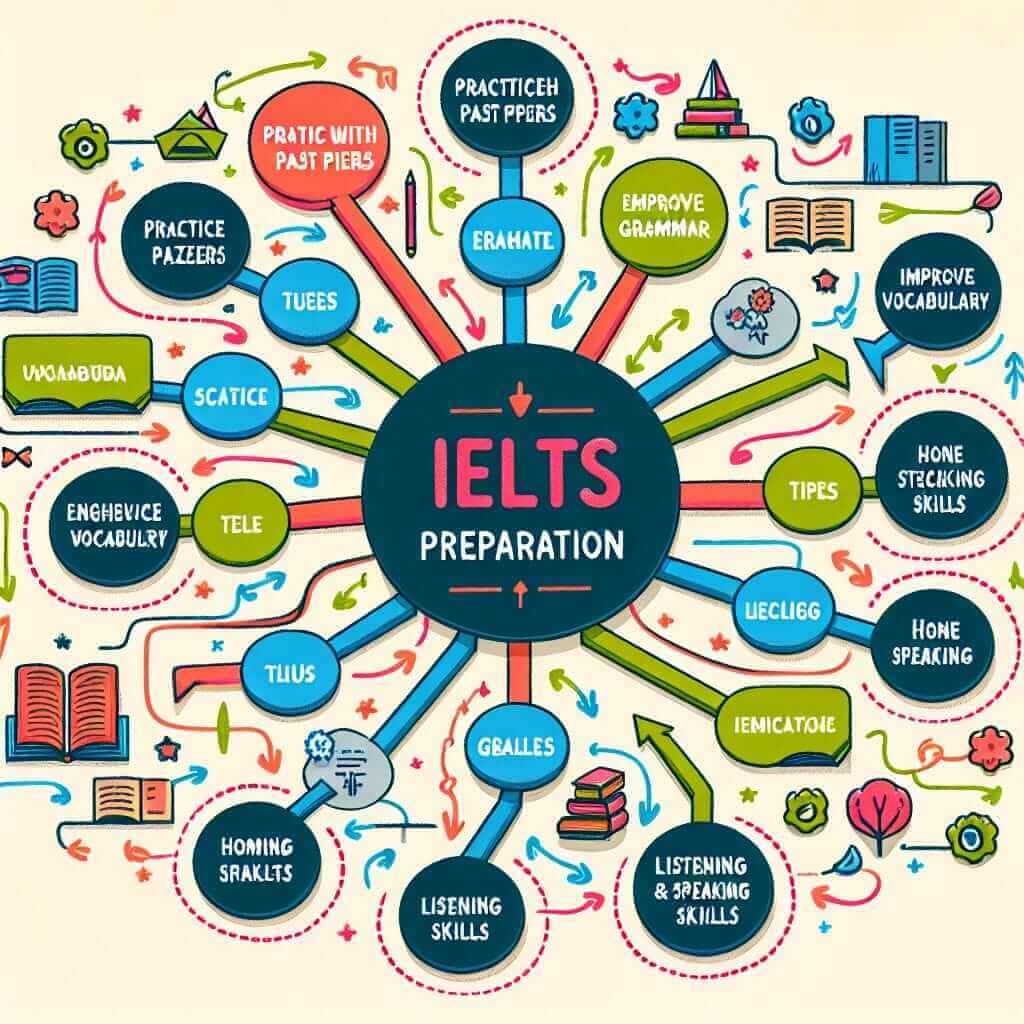The journey from an IELTS band score of 6.0 to 7.0 can be a common question that pops up for many English language learners. It’s a significant jump that reflects a marked improvement in your English language proficiency. But the burning question remains: “How many hours of study do I need to dedicate to make this leap?” As an IELTS instructor with over 20 years of experience, I’m here to guide you through this.
It’s Not Just About the Hours, It’s About How You Use Them
While there’s no magic number of hours that guarantees a band 7.0, it’s safe to say that transitioning from a 6.0 to a 7.0 requires a focused and strategic approach. It’s not just about the quantity of time you invest, but the quality of your study sessions. Let’s delve into the factors influencing your study duration:
Factors Influencing Your IELTS Preparation Time:
- Your Current English Level: Honestly assess your strengths and weaknesses. A strong foundation might require less time compared to bridging significant gaps in your skills.
- Learning Style and Pace: Recognize how you learn best. Some thrive on structured learning, while others prefer a more immersive approach. Adapt your study methods accordingly.
- Study Resources and Strategies: Utilizing the right resources and adopting effective learning strategies can optimize your preparation process.
- Consistency and Dedication: Regular and disciplined study sessions are key. Aim for consistency rather than cramming information sporadically.
A Practical Roadmap: Where to Focus Your Efforts
To give you a clearer picture, let’s break down the areas you need to focus on and effective strategies to implement:
1. Mastering the IELTS Exam Format:
Familiarize yourself thoroughly with the structure, timing, and question types of each section. Understanding the exam format will enable you to strategize your time and approach questions effectively.
Example: In the IELTS Speaking test, understand the different parts (introduction, individual long turn, discussion) and practice delivering well-structured responses within the time limits.
2. Enhancing Your Vocabulary:
A wide-ranging vocabulary is crucial for achieving a 7.0. Focus on building vocabulary related to common IELTS topics like education, technology, environment, and healthcare.
Example: Instead of using simple words like “good,” explore synonyms like “excellent,” “outstanding,” or “exceptional” to showcase a broader vocabulary range.
3. Grammar and Accuracy:
Ensure a strong grasp of English grammar rules. Pay attention to areas where you tend to make mistakes and work on improving your accuracy.
Example: Practice using a variety of complex sentence structures correctly, such as conditional sentences or relative clauses, to demonstrate grammatical range and accuracy.
4. Developing Coherence and Cohesion:
Your writing and speaking should flow smoothly and logically. Use linking words and cohesive devices effectively to connect ideas and create a cohesive structure.
Example: Use transition words like “furthermore,” “in addition,” or “on the other hand” to connect ideas within and between paragraphs in your writing.
5. Honing Your Speaking and Listening Skills:
Engage in regular speaking practice to improve fluency, pronunciation, and your ability to express ideas clearly. For listening, practice understanding different accents and focusing on key information.
Example: Record yourself answering IELTS Speaking test questions, analyze your performance, and identify areas for improvement.

Tips for Effective IELTS Preparation:
- Set Realistic Goals: Break down your study plan into smaller, manageable goals to track your progress and stay motivated.
- Practice Regularly with Past Papers: Familiarize yourself with the exam format and identify your strengths and weaknesses.
- Seek Feedback from Experienced Tutors: Personalized feedback on your writing and speaking can pinpoint areas needing improvement.
- Immerse Yourself in English: Read English books, watch movies, or listen to podcasts to improve your overall language proficiency.
- Stay Motivated and Persistent: Remember that consistent effort and a positive attitude are crucial for success.
In Conclusion
The journey from a 6.0 to a 7.0 IELTS score is a marathon, not a sprint. It requires focused effort, consistent practice, and a strategic approach. While the number of study hours varies based on individual needs, utilizing your time effectively and targeting your weaknesses will pave the way for success. Embrace the learning process, stay dedicated, and you’ll be well on your way to achieving your desired IELTS score.